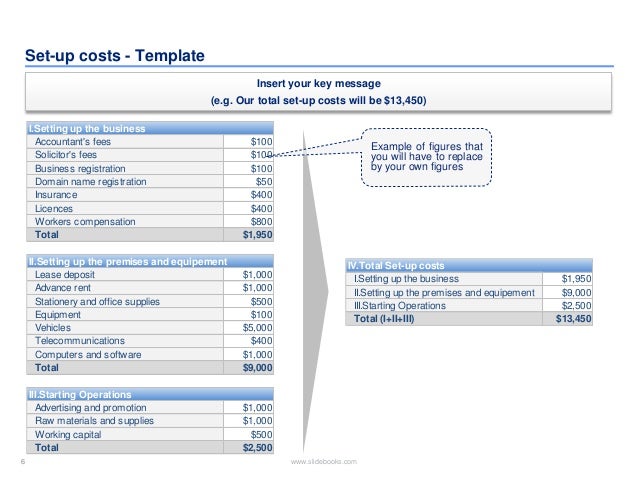
Image source: https://www.successperformancesolutions.com/wp-content/uploads/2012/08/home-health-nurse_71309545.jpg
Hiring a Home Health Care Employee
Providing the primary care for an elder loved one can be difficult. When you cannot deliver all the elder care yourself and support from friends, family, and community organizations is not enough, it may be useful to hire a home health care worker. He or she can offer care from a few hours a week to 24 hours a day, and can provide many other helpful services. Types of in-home health care services include:
General Health Management like administration of medication or other medical treatments
Personal care such as bathing, oral hygiene, dressing, and shaving
Nutrition help like preparing meals, assisting eating, and grocery shopping
Homemaking services including laundry, dishwashing, and light housework
Companionship for example reading to the senior or taking them on walks
Recruiting and Interviewing Applicants
There are many avenues for hiring a home health care employee. Generally, home health care workers can be hired directly or through an agency. Home health care agencies often have a staff that includes social workers and nurses that will manage your care. However hiring an independent home health care worker is generally more cost effective, it will also give you more control over the type of care you receive. Resources like TheCaringSpace.com help connect you with independent home health care workers in your area.
Senior home care workers should be carefully screened for proper training, qualifications, and temperament. Fully discuss the needs of the elder care recipient during an interview with a prospective home health care employee. There should be a written copy the job description and the type of experience you are looking for.
References
Have applicants fill out an employment form that includes the following information:
Full name
Address
Phone number
Date of birth
Social Security number
Educational background
Work history
Before hiring, you should ask to see the senior home care worker's licenses and certificates, if applicable, and personal identification including their social security card, drivers license, or photo ID.
References should be checked out thoroughly. Prospective employees should provide the employer with names, dates of employment, and phone numbers of previous employers and how to contact them. It is best to talk directly to previous employers, rather than just to accept letters of recommendations. Also ask the applicant to provide or sign off on conducting a criminal background check (TheCaringSpace.com can be used to complete background checks on caregivers).
Special Points to Consider
Make sure the person you are considering hiring knows how to carry out the tasks the elder care recipient requires, such as transferring the senior to and from a wheelchair or bed. Training may be available, but make sure the worker completes the training successfully before hiring him or her.
No one should be hired on a seven-day-a-week basis. Even the most dedicated employee will soon burn out. All employees need some time to take care of their personal needs. No worker should be on call 24-hours a day. If the elder care recipient needs frequent supervision or care during the night, a family member or second home health care worker should be able to help out or fill in.
Live-in assistance may seem to be more convenient and economic than hourly or per-day employees but there can be drawbacks. Food and lodging costs must be calculated into the total cost of care, and it could be difficult to dismiss someone without immediate housing alternatives. If you decide to utilize a live-in arrangement, the employee should have his own living quarters, free time, and ample sleep.
Job Expectations and Considerations
Before hiring a senior home health care worker, you should go over the tasks you expect them to perform and other issues, such as promptness, benefits, pay scale, holidays, vacations, absences, and notification time needed for either employer or employee before employment is terminated. If you work and are heavily dependent on the home health care worker, emphasize the importance of being informed as soon as possible if he or she is going to be late or absent so that you can make alternative arrangements. Be clear about notification needed for time off, or what to do in the case the home health care worker experiences a personal emergency that requires them to abruptly leave work. It is important to have a backup list of friends, family, other home care workers, or a home health care agency you can call on.
Be clear about issues concerning salary, payment schedule, and reimbursement or petty cash funds for out of pocket expenses.
You should spend the day with the home health care worker on his first day to make sure you are both in agreement over how to carry out daily tasks. It would also be helpful to supply the home health care worker with a list of information on the elder care recipient such as: special diets, likes, dislikes, mobility problems, health issues, danger signs to monitor, possible behavior problems and accompanying coping strategies, medication schedule, therapeutic exercises, eye glasses, dentures, and any prosthetics.
You should also provide the following information to your home health care worker: your contact information, emergency contacts, security precautions and access to keys, clothing, and locations of washing/cleaning supplies, medical supplies, light bulbs, flashlights, fuse box, and other important household items.
Transportation
Another big consideration in hiring a senior home care worker is how he or she is going to get to work. If they do not have a reliable car or access to public transit, then you might want to consider hiring someone to drive him or her, which might be more economical than using taxis. Inform your insurance company if the home health care worker is going to drive your car when caring for the senior. Your insurance company will perform the necessary driving background checks. If the home health care worker is using his or her car to drive the elder care recipient, then discuss use of her or his car, and conduct a driving background check.
Insurance and Payroll
Check with an insurance company about the proper coverage for a worker in your home.
Make sure all the proper taxes are being drawn from the employee's check by contacting the Internal Revenue Service, state treasury department, social security, and the labor department. If you do not want to deal with the complexities of the payroll withholdings yourself, than you can hire a payroll company for a fee.
Even if your home health care worker is working as a contractor, you are still obligated to report the earnings to the IRS. Talk to your accountant or financial advisor about making sure you are following IRS rules.
Ensuring Security
You should protect your private papers and valuables in a locked file cabinet, safe deposit box, or safe. If you are unable to pick up your mail on a daily basis, have someone you trust do it, or have it sent to a post box. You should check the phone bill for unusual items or unauthorized calls. You should put a block on your phone for 900 numbers, collect calls, and long-distance calls.
Keep checkbooks and credit cards locked up. Review credit card and bank statements on a monthly basis, and periodically request credit reports from credit reporting agencies. Lock up valuable possessions or keep an inventory of items accessible to people working in the house.
You can help to prevent elder abuse to your loved one by:
Make sure the home health care worker thoroughly understands his or her responsibilities, the elder care recipients medical problems and limitations, and how to cope with stressful situations.
Do not overburden the home health care worker.
Encourage openness over potential problems.
The following are possible signs of elder abuse or neglect:
Personality changes
Crying, whimpering, or refusing to talk
Sloppy appearance
Poor personal hygiene
Disorganized or dirty living conditions
Signs of inappropriate sedation, such as confusion, or excessive sleeping
Mysterious bruises, pressure sores, fractures, or burns
Weight loss
If you suspect abuse, act immediately. Do not wait until the situation turns tragic. Investigate the situation by talking to the elder care recipient in a safe situation, or install monitoring equipment. Examples of abusive behavior include yelling, threatening, or over controlling behavior that could involve isolating the senior from others. If the situation is serious, you should replace the home health care worker as quickly as possible. If you fear the elder care recipient is in danger, he or she should be separated from the home health care worker as soon as possible. Place the elder care recipient with a trusted relative or in a respite care facility. Make sure your loved one is safe before confronting the home health care worker, especially if there is concern about retaliation.
Report the situation to Adult Protective Services after ensuring the safety of the elder care recipient. The police should be contacted in the case of serious neglect, such as sexual abuse, physical injury, or misuse of funds.
Supervising a Home Health Care Worker
The most important thing to remember after hiring a home health care worker is to keep the lines of communication open. You should explain the job responsibilities clearly, and your responsibilities to the home health care worker. Do not forget that the home health care worker is there for the elder care recipient and not the rest of the family. For live-in arrangements, the maximum amount of privacy should be set up for the home health care workers living quarters. Meetings should be set up on a regular basis to assure that problems are nipped in the bud. If conflicts cannot be resolved after repeated attempts, than it is best to terminate the employee. In such a case, you may have to either place the elder care recipient in a nursing home temporarily or hire a home health care worker through an agency. Reserve funds should be kept on hand in the case of such an emergency.
General Eligibility Requirements for Home Care Benefits
Hiring a home health care worker directly is usually less expensive than hiring through a home health care agency; but if the elder care recipient is eligible and you wish to use assistance from Medicare, you must hire someone through a certified home health care agency. For the senior patient to be eligible, three or more services must be ordered by a physician. Other factors or eligibility are the required need for skilled nursing assistance, or one of the following therapies: physical, speech or occupational. The elder care recipients medical needs will determine asset and income requirements.
Hiring Home Health Care Workers through Home Health Care Agencies versus Independently
Different health care professionals can assess the elder care recipient's needs. A nurse or social worker can help with design and coordination of a home care plan. Your care manager, doctor, or discharge planner can help with services being covered by Medicare. They generally help make the arrangements with a home health care agency.
You should ask the home health care agency how they supervise their employees, and what kind of training their employees receive. Find out the procedures for when an employee does not show up. Also ask about the fee schedule and what it covers, there may be a sliding fee schedule. Furthermore, find out if they have a policy for minimum or maximum hours. Ask the agency if there are any limitations on the types of tasks performed.
Especially if you have to pay for the home health care services yourself, find out if there are any hidden costs such as transportation. If all the costs for hiring a home health care worker through an agency become too much, you may want to consider hiring directly.
Hiring independent home health care workers is not only more economical than using an agency, but it also allows more direct control over the elder care. TheCaringSpace.com is an online community that can help connect you with independent, qualified home health care workers in your area.










